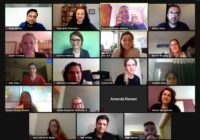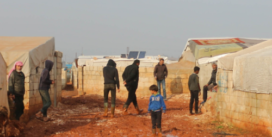- Fall Newsletter, 2025, Issue 15
- Using International Online Learning Modules to Engage Students in the Study of Critical Global Issues
- Upcoming Book Launch: Hearts of Freedom
- Announcing winners of the 2025 CARFMS Essay Contest
- The New York Declaration for Refugees and Migrants and its two Global Compacts: Addressing the Symptoms or the “Root Causes” of Forced Displacement?*
Ending Forced Migration as a “Weapon of War”
By James C. Simeon By the time the Office of the United Nations High Commissioner for Refugee’s (UNHCR) Global Trends, Forced Displacement in 2021 was released on June 16, 2022, its figures for the previous calendar year were already outdated in a number of key respects.[1] The most obvious being Russia’s blatantly illegal full scale invasion of the Ukraine on February 24, 2022, that has resulted in some 14 million people being forcibly displaced to…
Read More





